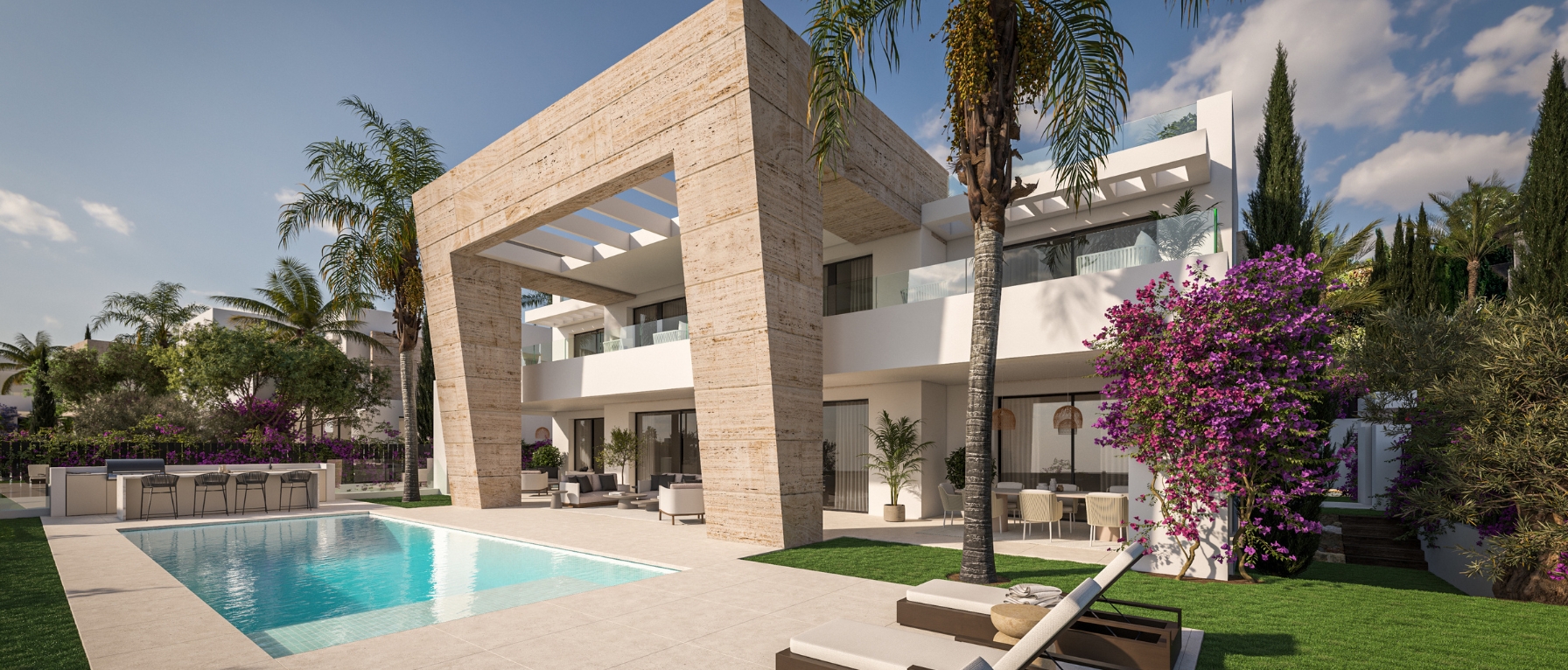
Buying a New Development in Marbella: What You Need to Know
Investing in a new development in Marbella is more than just acquiring property—it's about embracing a lifestyle. With its year-round sunshine, high-end amenities, and booming luxury market, Marbella continues attracting discerning buyers worldwide. However, buying a newly built or off-plan property here involves specific paperwork and steps that should be clearly understood before signing anything. Below, we've outlined everything you need to know to make your purchase smooth and secure.
Why Choose New Developments in Marbella?
Opting for a new development means enjoying modern designs, better energy efficiency, and low maintenance costs. In Marbella, these benefits are combined with the assurance of legal protections and a high standard of living. Whether you're relocating, retiring, or investing, Marbella's real estate market continues to offer excellent opportunities.

The Avenue Marbella
What You’ll Need as a Buyer
As a buyer, there are several essential documents you’ll need to provide before moving forward with your purchase:
1. NIE (Foreigners' Identification Number)
This is your tax identification number in Spain and is mandatory for purchasing and registering the property.
2. Valid Passport or ID
All legal procedures will require identification, including contract signings and notary appointments.
3. Proof of Funds
Expect to show evidence of financial solvency. A bank reference or financial statement may be required, especially for high-end purchases.
4. Spanish Bank Account
Used for making payments, setting up direct debits, and covering utilities. It’s advisable to open one early in the process.
5. Power of Attorney (Optional)
If you can't be present to sign documentation in Spain, a lawyer can act on your behalf with this legal arrangement.
What the Developer Must Provide
Before committing to a property, ensure the developer presents the following documentation. This due diligence step is critical in protecting your investment:
1. Developer’s Legal Identification & Land Title
The developer must prove legal ownership of the land where the property is being built.
2. Building License and Approved Project
This ensures the construction has been authorized by the local town hall and complies with planning laws.
3. Special Bank Account
Developers must maintain a separate account exclusively for buyer deposits. This guarantees your payments are used only for the specific development. The bank is also legally required to ensure an insurance policy is in place (source).
4. Advance Payment Guarantee Insurance
This insurance protects your deposits during the build process and is legally required.
5. Ten-Year Structural Insurance (Seguro Decenal)
Mandatory insurance that covers structural defects for a period of 10 years.
6. Building Specifications
Also known as the "Memoria de Calidades," this document outlines materials, finishes, and features. It must be attached to your contract.
7. Updated Land Registry Report
This report confirms the property’s legal status, including any existing charges or claims.
8. Energy Performance Certificate
Required for all new builds since 2013, this rates the property's energy efficiency.
9. First Occupancy License (LPO)
This certificate is issued after construction and confirms the property is legally habitable.
10. Private Purchase Contract
Includes terms and conditions, payment milestones, and penalties. Always have it reviewed by your legal advisor.
The Buying Process in Three Simple Stages
1. Reservation
Secure the property with a payment—typically between €6,000 and €10,000. This temporarily takes it off the market.
2. Private Purchase Agreement
Signed usually within 2–3 weeks of the reservation. A 30% deposit is standard at this point for new builds.
3. Title Deed Signing (Public Deed)
Completed at the notary once the development is finished. Final payment is made, and the property is officially registered in your name.
Costs & Taxes You Should Expect
- VAT (10%) on the purchase price.
- Stamp Duty (1.2%).
- Notary and Land Registry Fees.
- Legal and Administrative Fees.
For more details, visit Martínez-Echevarría Abogados
Final Thoughts
Buying in a new development in Marbella combines lifestyle and smart investment. The process is secure—provided you’re equipped with the right documentation and advice. Work with reputable professionals, including trusted agencies like FM Properties, to ensure your interests are protected from day one.
FAQs
Do I need an NIE to buy property in a new development in Marbella?\
Yes, it’s a legal requirement for all property buyers in Spain.
What taxes will I pay on a new build?\
You’ll pay 10% VAT plus 1.2% Stamp Duty.
Is structural insurance required for new builds?\
Yes, a ten-year insurance policy (Seguro Decenal) is mandatory.
When is the 30% deposit paid?\
Upon signing the private contract, typically 2–3 weeks after reservation.
Is power of attorney necessary?\
It’s optional but helpful if you can’t travel to Spain for signing.



